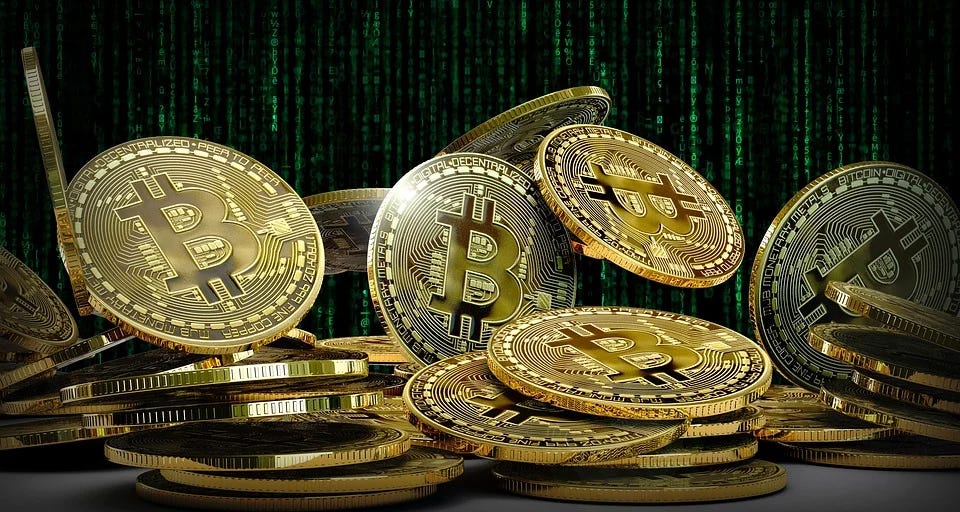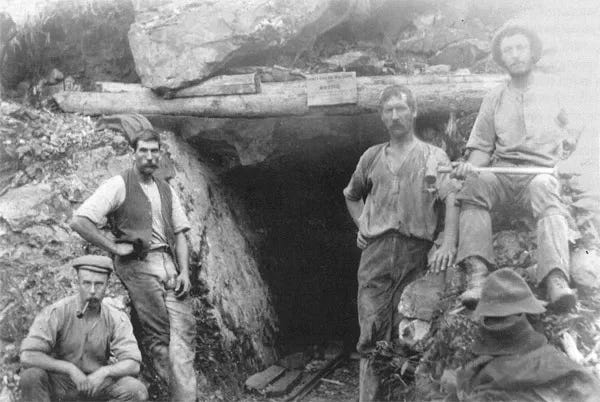"Imagine if keeping your car idling 24/7 produced solved Sudokus you could trade for heroin." -Internet Humorist
It may not be perfectly true, but it will go down in history as one of the greatest jokes in Bitcoin lore.
For the moment, let us ignore that purchasing drugs was one of the first use cases for Bitcoin, almost immediately following the purchase of pizza. Let's focus on the basics.
How Does Bitcoin Mining (Not Really) Work?
Ask this question of a Bitcoiner and you might receive a face full of jargon like "hash" and "nonce", which is a Bitcoiner's way of telling you how smart they are. But even the attempts at simple explanation have not yet settled to the economically optimal. The Investopedia explanation is a common one:
Bitcoin mining is the process by which new bitcoins are entered into circulation. It is also the way the network confirms new transactions and is a critical component of the blockchain ledger's maintenance and development. "Mining" is performed using sophisticated hardware that solves an extremely complex computational math problem. The first computer to find the solution to the problem receives the next block of bitcoins and the process begins again.
I recall first hearing about how miners "solved complex computational math problems" and thinking this had something to do with factoring massive integers into large primes or performing operations associated with elliptic curves. These are the computations associated with the "trap door functions" (easier to compute one way than in reverse) that allow for the most common forms of modern cryptography. And while Bitcoin uses a modern form of cryptographic protection known as SHA-256, you can understand the basic idea of mining without knowing anything at all about the mathematics of cryptography.
Mining is a Lottery
When you think about it, prospecting for gold is a kind of lottery. You invest capital and energy on the chance of finding some gold. There is a cost, like that of a lottery ticket, and a reward, like the winning prize.
Once mined, the gold essentially stores the mean value of capital and labor used to produce it plus some premium. It can be saved or traded, and is essentially permanent—at least relative to the span of human lives.
Bitcoin mining is also a lottery. Each computer that mines Bitcoin "buys lottery tickets" by spending electricity to choose numbers at random until one computer buys a winning ticket. It works a bit like this:
Each ticket is a random number between 1 and 1,000,000,000,000.
The first ticket with a single-digit number wins the "block reward" (some Bitcoin).
Winning the mining lottery is a bit like shooting an arrow at an enormous target that is placed after you are blindfolded and hitting some tiny speck that would be too small for you to see even if you had the blindfold off, then being spun around still blindfolded and splitting the first arrow with your next shot.
Now you know why it takes so many computers around the world to split the arrow
The lotteries are designed and adjusted to last around 10 minutes, so the Bitcoin mining lottery is won around once every ten minutes at which point (some amount of) new Bitcoin is "minted" as a block reward which is to say that it appears at the wallet address of the winning miner.
Now you can understand the word "hash" in terms of the lottery. Each time a computer/miner chooses a random number, that randomness is governed by a "hashing algorithm", where "hashing" is a sort of physical description of the process being "jumbled up" so that you can't track down what's going on in order to game the system. A computer that performs 10 hashes per second buys 10 lottery tickets in that second. The ticket numbers might be,
304885234156
021654989776
964512345664
654321456753
632156454454
946765843154
110112986545
230113787757
000000000213
451547864343
My example here lists decimal numerals that most people are accustomed to reading. I did that to make the explanation easier to absorb. But in truth, the computers operate with 16 digits, not 10, which is the hexadecimal system. Since 2^4 = 2 x 2 x 2 x 2 = 16, hexadecimal relates more directly to binary strings than does the decimal system. Hexadecimal is convenient (efficient) for computing. A 12-digit hexadecimal string (lottery ticket) might be
7B8BE11019CC.
As small as the number was on the ninth ticket (000000000213), it still wasn't all that close to winning the lottery. Winning is hard. And random. Many miners join mining pools with other miners to share the random rewards, which one of them might win once every several hours, days, or even weeks depending on the number and power of the computers in the pool with respect to all the computers in the world mining Bitcoin. Pooling "smooths" out the investment. Any one mining computer might burn out after several years without winning.
Note: The strings of hexadecimal digits are far larger than 12 digits, and the number of zeros at the start of the string for a winning lottery ticket/hash changes according to amount of hashing going on with all miners in the world in order to keep the lottery wins around one per every 10 minutes.
The Lottery Costs
There is a debate over whether it's reasonable for each ticket to be purchased with electricity given the externalities (pollution) resulting from running the lotteries. I hope to have time for my own deep dive on the topic one day. For now, I'll point out that the costs of the current monetary system are obscured. I will write an article at some point about why we should count the military and most wars among those costs, which consumes an enormous part of the world's energy and comes at the cost of human misery as well.
Debt money might also be said to be mined at the cost of human misery.
I personally see Bitcoin as the best human attempt to optimize the use of energy to secure money with integrity, but I'll defend that thesis another time. In the meantime, I recommend Nic Carter as one of the experts on the topic.







I encourage beginners to ignore Ungovernable Rich who seems likely intent on making conversations on this topic less simple. Seems like typical trolling.
The conversations he starts are like many that take place in forums among people past the beginner level of understanding, though he seems to start with belief before epistemology, which is putting the cart before the horse.
My only interest in bitcoin is standing in wonder and watching it. That said, I laughed and the use of the word ‘nonce’ - in the UK, a NONCE is someone in prison who is Not On Normal Courtyard Exercise. Usually reserved for child murderers and child sex offenders who are usually in danger if they mix with the rest of the prison population.